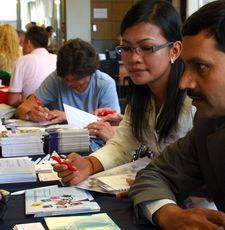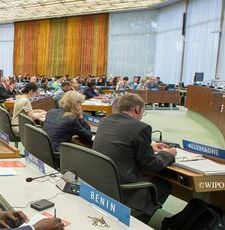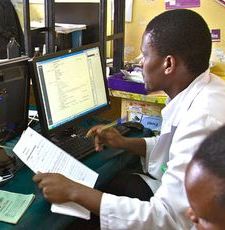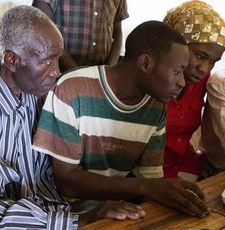ABOUT THE RESOURCE
In 2011-2013 EIFL provided financial support to 34 projects that implemented national and institutional open access (OA) advocacy campaigns to reach out to research communities and OA publishing initiatives.
Through small grants and support from their own institutions, the projects engaged in a wide variety of campaigns and activities, including: holding workshops, creating websites, building institutional OA repositories, creating e-learning courses, and implementing OA publishing platforms.
The case studies resulting from the projects reveal impressive first-time achievements and will help increase the availability of research literature in developing and transition countries.
Learn more about the key achievements for this national OA publishing project in Lithuania below. You can access the full case study (strategies, tactics and tools, success stories and lessons learnt) by clicking on the download button.
ABOUT THE PROJECT IN LITHUANIA
In 2011, a survey of the Association of Lithuanian Serials showed that the majority of Lithuanian research journals were uploaded to simple websites; this approach results in low visibility of Lithuanian research and provides no solution for interoperability with other online system.
More than 130 participants involved in publishing attended the international conference, “The Possibilities of Disseminating Lithuanian Research Journals Worldwide”, organized by the Lithuanian Research Library Consortium and the Association of Lithuanian Serials during the Open Access (OA) Week 2010 (on 21 October). As a result of attending this conference, 10 research journals decided to use the Open Journal Systems (OJS) – a FOSS journal management and publishing system, developed by the Public Knowledge Project.
KEY ACHIEVEMENTS:
- Over 130 participants involved in publishing attended training events and learnt about OJS and on-line publishing.
- Lithuanian OJS version and guidelines for journal editors and publishers have been released and disseminated.
- Digital Object Identifier (DOI), and Cited By (by crossref.org) have been added to the OJS installations in the Lithuanian and English languages. Promoting plagiarism detection tools (CrossCheck) (by crossref.org and iThenticate).
- 22 OJS installations (and counting) implemented at seven research institutions
- More journals started to work on OJS installations in 2011, however, haven’t gone live yet.
- All these journals are in the process of being registered in the Directory of Open Access Journals.
- Improved online visibility and accessibility of the Lithuanian research journals.
- The OJS system made it considerably easier for journal editors to manage manuscript submissions, reviewing and publishing. For example, after the OJS installation the journal “Sveikatos mokslai” (Eng. Health Sciences) changed its frequency from four to six issues a year.
- Libraries assisted the journals with OJS installations and expanded their services to new areas and new communities. For example, Kaunas University of Technology, that owns 11 journals, had one OJS installation before the project started and within the project all eleven journals started using OJS.
SHARE / PRINT









